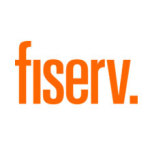E-invoicing in Europe 2024: a country by country policy overview
When doing business in Europe, navigating the complex e-invoicing landscape in individual European countries has become more important than ever. Various countries have adopted different invoice exchange models and defined different electronic invoicing requirements over the years, creating a complex business environment. However, the European Union (EU) is actively working to harmonise these widely differing models through legislative efforts aimed at creating a single pattern for e-invoicing with a consistent approach to many issues.

Delving into the mandates, legal changes and harmonisation efforts in B2B and B2G e-invoicing in Europe
The European Commission recently unveiled VAT in the Digital Age (ViDA), a comprehensive proposal to reform the EU’s value added tax system. This reform includes significant changes in the scope of obligations regarding e-reporting and e-invoicing.
EU Member States will soon be able to impose business-to-business (B2B) e-invoicing requirements without having to ask the European Parliament for a derogation of current laws prohibiting them from imposing mandates. These upcoming changes present opportunities and challenges for businesses, making it vital to stay informed about each country’s adaptation.
E-invoicing in the EU: legal changes in key countries
Let’s delve deeper into the e-invoicing mandates in specific European countries.
Poland
Poland is positioned to lead the way in e-invoicing within the EU, undergoing a transition to the clearance model facilitated by the introduction of its national e-invoicing system, called Krajowy System e-Faktur (KSeF). Following a successful pilot phase from October to December 2021, KSeF became available on a voluntary basis from the start of 2022, mandating the use of the XML invoice format.
KSeF will become mandatory from July 2024. Until then, companies registered as Polish VAT payers can issue invoices via KSeF, however, paper and PDF invoices sent outside of KSeF are still acceptable. The current condition for sending an e-invoice through the national e-invoice system is the consent of the recipient.
Each invoice processed by KSeF is stamped with a unique ID number, and an official confirmation of receipt is returned to the issuer. Obtaining a KSeF ID confirms that the invoice complies with the legally required structured format.
E-invoicing for business-to-government (B2G) transactions has been operational in Poland since 2019 through Platforma Elektronicznego Fakturowania (PEF), designed for electronically submitting invoices from suppliers to the public sector. With the impending enforcement of KSeF, invoices sent to PEF (currently used for B2G invoicing) will be forwarded to KSeF.
Romania
On September 19, 2023, the Romanian Ministry of Finance released a draft law designed to govern the introduction of mandatory e-invoicing starting January 1, 2024. The proposed legislation outlines a strategy for the phased implementation of this mandate. Initially, the expanded requirement to report all B2B invoices issued by entities based in Romania through RO-eFactura will take effect six months later, on July 1, 2024. This obligation extends to non-resident Romanian business entities registered as VAT payers.
The complete integration of the system is slated to commence on July 1, 2024, at which point the obligation to report invoices will become a mandate to issue e-invoices via RO-eFactura. The initiative also introduces an additional set of sanctions applicable to potential e-invoice recipients, with a distinction between B2B and B2G relationships. These sanctions will be enforced without any grace period starting from July 1, 2024.
France

In France, the transition to e-invoicing has been well-established in the B2G sector, requiring companies to send invoices to the public sector electronically since January 1, 2020. The introduction of mandatory B2B e-invoicing is anticipated to take place in stages. However, there has been a recent delay in the implementation of mandatory B2B e-invoicing and e-reporting, originally scheduled for July 1, 2024.
On October 17, 2023, an amendment to the forthcoming budgetary bill was introduced by France’s lower house of parliament, the Assemblée Nationale, setting forth a revised and practical schedule for the implementation of the e-invoicing and e-reporting system. The updated timeline is outlined as follows:
- During the first half of 2024, the licensing process for the Partner Dematerialisation Platform (PDP) will be completed, along with the finalisation of the Public Invoicing Portal (PFF).
- Throughout the entirety of 2025, a pilot program phase will be undertaken.
- By September 2026, there will be a requirement for large and medium enterprises to issue e-invoices, with all entities, regardless of their size, being capable of receiving electronic invoices (this phase may be postponed to December of the same year).
- By September 2027, small enterprises will be obliged to issue e-invoices (this phase may potentially be postponed to December of the same year).
- The e-reporting requirements are anticipated to adhere to a parallel timeline.
- The dates may be subject to modification upon the passage of the Financial Bill for 2024, which is supposed to be voted on at the end of December 2023.
The issuance, sending, and receipt of electronic invoices in France will be facilitated through a public invoicing portal (PPF) based on the Chorus Pro platform, or registered private platforms (PDP) acting as trusted third parties. These platforms will convert, validate, and transmit invoices to the French tax authority.
Germany
Germany’s e-invoicing landscape is marked by its complexity, as each federal state has enacted its own set of laws and regulations regarding e-invoicing, resulting in significant variations. Notably, there is currently no mandatory B2B e-invoicing requirement in Germany, but such an obligation exists for B2G transactions.
German companies will be required to issue electronic invoices for VAT-taxed transactions from January 1, 2026, while electronic invoicing will be voluntary from January 1, 2025. The mandate will apply exclusively to domestic transactions involving entities based in Germany, including foreign companies established in Germany. However, it will not apply to business-to-consumer (B2C) transactions.
The new invoicing system will be the default method, alongside the use of mandated e-invoice formats. Nevertheless, companies will be allowed to issue invoices in current dematerialized formats until the full implementation of the mandate on January 1, 2028.
Italy
In Italy, B2G e-invoicing has been mandatory for all central administrations since 2014, with gradual implementation. In 2015, this obligation was extended to all public entities. Italy is also the first EU country to mandate national B2B and B2C e-invoicing, which commenced on January 1, 2019. Micro-enterprises are currently exempt but will be required to issue e-invoices starting from January 1, 2024.
In B2G transactions, a qualified electronic signature is mandatory. All electronic invoices in Italy must be sent through the national internet hub, serving as a portal for sending and receiving e-invoices.
Spain
In Spain, B2G e-invoicing has been mandatory since 2015 for transactions exceeding €5,000. While B2B e-invoicing is currently voluntary, it is likely to become mandatory in the near future. While an exact implementation date remains uncertain, it is unlikely to occur in July 2024.
The e-invoicing obligation will apply solely to domestic B2B transactions, exempting cross-border B2B transactions, simplified invoices, and transactions not requiring invoices, such as B2C transactions. Detailed requirements and technical specifications are forthcoming.
During the initial 12 months, companies must issue e-invoices with a PDF document to ensure legibility for those entities for which the obligation to receive e-invoices has not yet come into effect. Spain’s B2B e-invoicing follows the post-audit model.
E-invoicing mandates in other countries
 The adoption of e-invoicing rules across European countries varies. It’s important to note that the EU exhibits a diverse landscape when it comes to e-invoicing, with mandatory enforcement for B2G transactions being the norm, while B2B transaction requirements range from voluntary participation to impending obligations. Here’s a detailed overview of e-invoicing regulations in several European countries:
The adoption of e-invoicing rules across European countries varies. It’s important to note that the EU exhibits a diverse landscape when it comes to e-invoicing, with mandatory enforcement for B2G transactions being the norm, while B2B transaction requirements range from voluntary participation to impending obligations. Here’s a detailed overview of e-invoicing regulations in several European countries:
- Austria: Transactions with federal government entities and municipal administration units must be documented with structured electronic invoices, B2B e-invoicing is voluntary.
- Belgium: Mandatory e-invoicing for B2G transactions, mandatory B2B e-invoicing will be introduced in 2026.
- Croatia: All suppliers doing business with public entities are obliged to issue invoices in electronic format, B2B e-invoicing is voluntary but strongly recommended, and mandatory B2B e-invoicing will be introduced in 2026.
- Denmark: Suppliers of services and goods are required to send electronic invoices to public institutions and public authorities, while B2B e-invoicing is still voluntary if both parties agree to it. E-reporting solutions will be expanded in 2024.
- Finland: All invoices issued to the government must comply with standards for electronic invoicing, B2B e-invoicing is voluntary, but Finland obliges taxpayers to accept e-invoices under law introduced in 2020.
- Greece: A B2G mandate is currently in force for those implementing contracts with several public entities, while a broader obligation for the entire central administration and the rest of non-united administration bodies will enter into force from January 2024 to January 2025.
- Lithuania: B2G mandate in place, voluntary B2B e-invoicing.
- Luxembourg: Large companies are obliged to send e-invoices to public authorities.
- The Netherlands: E-invoicing to public entities (B2G) has become partially mandatory and B2B e-invoicing remains optional.
- Norway: B2G e-invoicing is mandatory, while B2B e-invoicing in the post-audit model is voluntary.
- Portugal: B2G e-invoicing is mandatory for large entities, but B2B e-invoicing is optional.
- Serbia: Mandatory B2G e-invoicing, from January 1, 2023, when regulations mandating the issuance and storage of e-invoices in B2B transactions came into effect.
- Slovakia: Public entities must be able to handle the receipt of e-invoices when the supplier decides to send them in this way, and the Slovak government plans to introduce a new continuous transaction controls (CTC) system for domestic B2B and B2C transactions, which is now scheduled to become mandatory from 2025 (originally planned for 2024). However, for testing purposes, voluntary participation is allowed in 2023.
- Sweden: Since 2008, issuing electronic invoices to government institutions has been mandatory. In 2019, it was extended to encompass the entire public sector through the PEPPOL framework. Government-to-business (G2B) e-ordering has been mandatory since 21 March 2021 for public entities with more than 50 employees. B2B e-invoicing in the post-audit model is not mandatory.
- Switzerland: mandatory e-invoicing for B2G transactions, but B2B e-invoicing is voluntary.
In addition to these countries, several others are actively in the process of implementing e-invoicing mandates. For instance, Latvia plans to make B2B and B2G e-invoicing mandatory by 2025.
Conversely, certain countries do not enforce mandatory e-invoicing for any transaction. Hungary, for instance, does not mandate e-invoicing for B2B and B2G transactions, but it does require real-time invoice reporting (RTIR) for Hungarian companies and foreign companies with branch offices in Hungary. Meanwhile, outside the EU, the UK does not impose an obligation for e-invoicing, although the government actively encourages businesses to send, receive, and process e-invoices for B2G transactions.
Challenges of e-invoicing in Europe in 2024: conclusion
In conclusion, the global trend of implementing new e-invoicing policies is set to continue, expanding to even more countries. Adapting to these changes and pursuing international business objectives requires a company to be well-versed in supporting various e-invoicing standards. In this dynamic landscape, it is prudent to consider a comprehensive e-invoicing solution that ensures compliance with legal frameworks and contemporary data transfer standards while upholding the integrity and quality of e-invoices.
Comarch E-invoicing System is a platform designed for effortless electronic invoice exchange in numerous countries worldwide. Continuously updated to meet evolving legal requirements in both the B2B and B2G sectors, this system offers the flexibility and reliability necessary for your global business operations.
Sponsored by Comarch











































